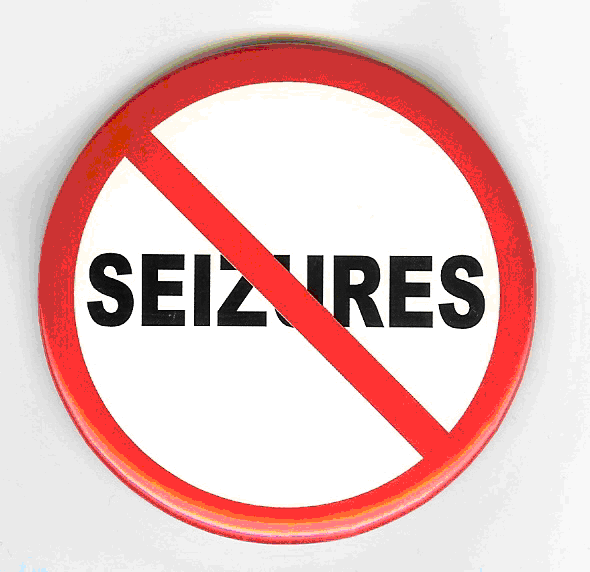It may be difficult to come to terms with the fact that you or your loved one has epilepsy, and you will probably be asking questions on how or why you have this condition. Try not to dwell too much on this, instead, start to focus on what you can do to better manage your epilepsy. Just making some small changes to the way you manage your epilepsy, could make a significant improvement to day-to-day quality of life.
 Importance of Regular Reviews with the Specialist
Importance of Regular Reviews with the Specialist
Inform your doctor if you find that you have problems with the medication, or if you notice any of the following:
- Side effects that hare having an impact on day-to-day life
- An increase in seizures
- A new type of seizure
- Seizure attacks last a longer time
Your family physician may decide an appointment with an epilepsy specialist that is appropriate. This will be an opportunity for you to find out about any treatment options that could offer improved seizure control and fewer side effects.
Even if you and your specialist decide not to change the medication, there may be ways of reducing the adverse effects you are experiencing, or the control you have over your seizures. Your doctor should be able to discuss those options with you.
You should not change the dose or stop your medication by yourself as there is the risk of increasing the frequency and the severity of the seizures.
Unfortunately, 3 out of 10 people with epilepsy will have seizures that cannot be controlled by medication. Their epilepsy specialist may consider other options, including surgery to help control their seizures.
Other Treatment Options
Vagal nerve stimulation
This is a device similar to a pacemaker implanted under the skin, which stimulates the vagal nerve to reduce epileptic seizures.
Ketogenic diet
This is a diet which is high in fats and low in proteins and carbohydrates. It is a very strict diet lasting 6 to 8 weeks initially before an assessment of its effectiveness can be made. As it can cause lower levels of vitamins B, C, and D, and calcium, supplements of these are required. The diet can lead to a number of side effects which prevent people from continuing with the diet plan. It is vital that it be carried out in collaboration with a dietician or endocrinologist.
Surgery
The part of the brain that causes the seizures and sometimes also some of the surrounding brain tissue is removed, often with very good results. Before proceeding to surgery, epilepsy specialists will make every possible effort to ensure that removing the part of the brain responsible for the seizures does not lead to an important loss of brain function.
Taking Control of Epilepsy
Epilepsy does not mean that your life has to drastically change. Just like everyone else, maintaining a healthy and well-balanced lifestyle is important. As a person with epilepsy, there are just a few additional measures to take. Some simple tips to do so:
- Remember to take the antiepileptic medication at the right time – one of the most common causes of uncontrolled seizures is people’s failing to take their medication correctly. Medicines are removed from the body at a different rate depending on the type of drug, which means that if you forget to take them, the amount of medicine in the blood may not be sufficient to control your seizures.
 Sleep well – lack of sleep increases the risk of epileptic seizures, especially in people with certain generalized epilepsies. A regular sleep pattern, ensuring enough rest, is recommended, and estimated to be between seven and ten hours a night )depending on your age).
Sleep well – lack of sleep increases the risk of epileptic seizures, especially in people with certain generalized epilepsies. A regular sleep pattern, ensuring enough rest, is recommended, and estimated to be between seven and ten hours a night )depending on your age).- Try to limit workload and stress – stress can trigger seizures so activities that help to reduce stress levels can help. Try to take time and pleasure in preparing good food for yourself, your family and friends. Only certain high risk sports are not advised if you have, for instance, mountain climbing, paragliding, hang-gliding, diving, etc. The majority well-run leisure activities and sports are possible and highly recommended. There will be many activities to choose from and opportunity to meet new people. If seizure is well controlled and you are able to tolerate your treatment, there should not be any effect on your sporting performance.
 Try to avoid stimulants such as coffee, alcohol or drugs and noise, especially if these trigger your seizures. Excessive use of alcohol is toxic for the neurons (brain cells) and can also affect sleep patterns, which may lead to further seizure. Some drugs may affect the way the epilepsy medication works, which could increase the risk of seizures. If you are being put on other medication for other illnesses, remember to inform you epilepsy specialist.
Try to avoid stimulants such as coffee, alcohol or drugs and noise, especially if these trigger your seizures. Excessive use of alcohol is toxic for the neurons (brain cells) and can also affect sleep patterns, which may lead to further seizure. Some drugs may affect the way the epilepsy medication works, which could increase the risk of seizures. If you are being put on other medication for other illnesses, remember to inform you epilepsy specialist.
